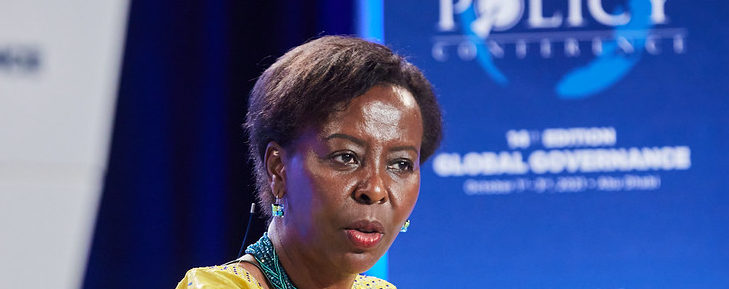
As Kigali hosted the 47th l’Assemblée Parlementaire de la Francophonie (APF) which concluded on 9th July 2022, the conference was a timely reminder of the need to maintain and rebuild the usage of French in schools and in every day life in Rwanda and cement the country’s status as a multilingual country.
In 2018, former foreign minister, Hon Louise Mushikiwabo was named as secretary general of L’Organisation internationale de la Francophonie (OIF), an organisation with 54 full members containing a population of one billion people, dedicated to promoting the French language and cultural and linguistic diversity, peace, democracy and human rights; to support education, training, higher education and research; and to foster economic cooperation to bolster sustainable development.
The move came after an eight-year cooling of relations between Kigali and Paris following Rwanda accusing France of being complicit in the 1994 Genocide against the Tutsi which culminated in Rwanda dropping the French language from the school syllabus.
Upon her appointment in 2018, Mushikiwabo said, “As secretary-general, I intend to give importance to French in an increasingly multilingual world because I am convinced that French has its place among other languages and for the good of the world.”
Following President HE Paul Kagame’s taking over the chairmanship of The Commonwealth during the Commonwealth Heads of Government Meeting (CHOGM) which took place in Kigali the previous week, Rwanda is in the unique position of having temporary stewardship of arguably both the most influential English speaking organisation in the world and the most influential French speaking organisation in the world.
This puts Rwanda in a strong position to achieve its strategy of becoming an international hub for business, particularly as a location for businesses to place their African headquarters.
The recently established Kigali International Financial Centre (KIFC) seems to be the main conduit to turn this ambition into a reality.
It has legal and regulatory standards for compliant and safe financial transactions comparable to world leading financial centres enabling the use of investment vehicles which address the needs of the local ecosystem and structuring of cross-border transactions.
With an average annual growth rate of 8.6 per cent over the past ten years, Rwanda is one of Africa’s fastest growing economies which with the addition of the KIFC is now poised to become one of the continent’s leading financial centres.
Rwanda is ranked second in sub-Saharan Africa in the World Global Rule of Law Index and second for ease of doing business. Rwanda is also recognised as among the least corrupt and safest countries on the continent.
Rwanda has established a strong Double Taxation Avoidance Agreement (DTAA) network with many countries and the country is extending its network in Africa and with leading developing economies and entered into Investment Protection Agreements with several other countries.
The country’s position in holding temporary stewardship of both The Commonwealth and L’Organisation internationale de la Francophonie allows the opportunity for Rwanda to act as the gateway for Anglophone businesses to open up opportunities in Francophone Africa and for Francophone businesses to open up opportunities in Anglophone Africa.
The only other countries in Africa listing both English and French as official languages are Seychelles and Mauritius* (*Mauritius’s constitution gives no mention of an official language but members of parliament are also allowed to address the national assembly in either English or French) which are both strong international financial centres, but unlike Rwanda, lack direct air links into most of Africa; Cameroon, where French and English is spoken depending on region; and Burundi, which recently added English as an official language, but has an underdeveloped financial sector and has the world’s lowest GDP per capita according to the International Monetary Fund (IMF).
Rwanda must do its best in not only promoting itself to Anglophone and Francophone businesses with an interest in Africa during this period, but also promoting the use of both languages in schools to maximise the benefit that ordinary citizens can also derive from Kigali becoming an Anglophone and Francophone and international financial centre.
The importance of Swahili cannot be downplayed as both a regional language and one that is evolving to become an African lingua franca. It is a recently recognised official language in Rwanda as well as an official language in Kenya, Tanzania and Uganda as well as official language of the African Union (AU), East African Community (EAC) and Southern African Development Community (SADC), as well as a recognised minority language in Burundi, the Democratic Republic of Congo (DRC) and Mozambique and spoken in parts of Comoros, Madagascar, Malawi, Mayotte, Somalia and Zambia.
Botswana, Ethiopia, South Africa and South Sudan are non-traditionally Swahili speaking countries which have added the language to their curriculum.
Promoting English, French and Swahili nationally can help Rwanda to claim pole position for companies wishing to trade with both Anglophone and Francophone Africa whilst also stimulating trade within East Africa and allowing citizens to derive the benefits of these developments through employment, business and trade opportunities.
Read the original article in The New Times.

